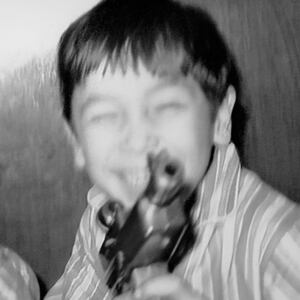Earlier this year, over the course of ten days in May, a flare-up of violence occurred in the ongoing occupation of Palestine by Israel, following the eviction of six Palestinian families from Sheikh Jarrah. Though hostilities have been continuous in the area for years, the crisis in May 2021 seemed to mark a turning point in public opinion, with many people describing the situation as outright ethnic cleansing by Israel, echoing past criticism from the United Nations, rather than simply a conflict between two sides bearing equal responsibility for atrocities.
A title card at the end of The Devil’s Drivers, a new documentary by Daniel Carsenty and Mohammed Abugeth, flags up the violence of May 2021 as yet one more episode in the situation it has observed over a period of eight years—that is, the continued annexation of Palestinian territories by Israel, made possible by a wall bisecting the land. The title card fits in with the repeated observation in the film, over eight brutal years, that “nothing has changed” in the territory. That contention is very hard to argue with in the face of the stagnant situation the film depicts, with newborn babies at the start of the film becoming young children by the end of it, still living in the shadow of the barrier.
The “devil’s drivers” of the title are a group of Palestinian Bedouins based in Yatta, a city in Hebron, who smuggle Palestinians from the West Bank across a gap in the barrier in order for them to be able to work. The filmmakers, over the course of the movie, observe the drivers as they shuttle passengers through the desert, and film them with their families, noting their lives as doting fathers, ordinary men whose engagement fits within a civic sense of duty to community.
The film’s principal asset, clearly, is the tense, raw, weirdly exhilarating footage gained on the fly in the car-drives across the desert: as plumes of white dust blow up all around the cars of Hamouda and Ismail, the movie’s chief subjects, and the vehicles bump and rattle along the treacherous landscape, the filmmakers capture something vital about this struggle. The viewer knows what is at stake, as Carsenty and Abugeth have been at pains to describe the carceral system that awaits those who flout the rules. This feels like action with meaning—"immersive" filmmaking that for once doesn’t feel cheap, because it is grounded in a smartly observed political situation. For example, en route with the drivers, we see very well how all Palestinian civilians are cast as suspects by Israeli forces, and how the drivers and their acolytes live in a permanent state of threat.
Along the way, the directors uncover some memorable imagery, such as the directors and their passengers huddling to take shelter from the oppressive sun under the shade of two trees in the middle of a deserted outcrop: This is lovely imagery, underplayed to a fault. Another remarkable scene depicts a sheik uttering a long, devout prayer in the back seat as the car rattles along its course, while a mobile phone rings persistently beside him, which he ignores as he finishes his chant; finally, a companion takes the call, and while still praying the man signals with his hand for the car to turn around: he has left his own mobile phone back at the base camp. This is Jacques Tati-esque comedy in the heart of a war zone, captured to perfection by quick-witted directors, who are both alive to the particularities of character.
In family scenes caught on the hop at home, Carsenty and Abugeth depict their subjects as loving fathers—little touches, such as all the warm kisses tenderly exchanged on the lips by the family of Hamouda, or the father talking about a stint in prison while his baby giggles on his lap, playing with his father’s ear, are beautifully seized, and exist in perfect counterpoint to the busy and perilous excursions. The family scenes also serve as a smart indicator of time, showing how inert the situation is in its desperation.
The Devil’s Drivers is another righteous and inarguable document, in the same year as the premiere in Cannes of Ahed’s Knee by Nadav Lapid and the general release of It Must Be Heaven by Elia Suleiman, of Israeli tyranny in Palestinian territories: It shows the crushing, relentless oppression of individuals, living in a de facto war zone. Given another eight years, will anything else have changed?







